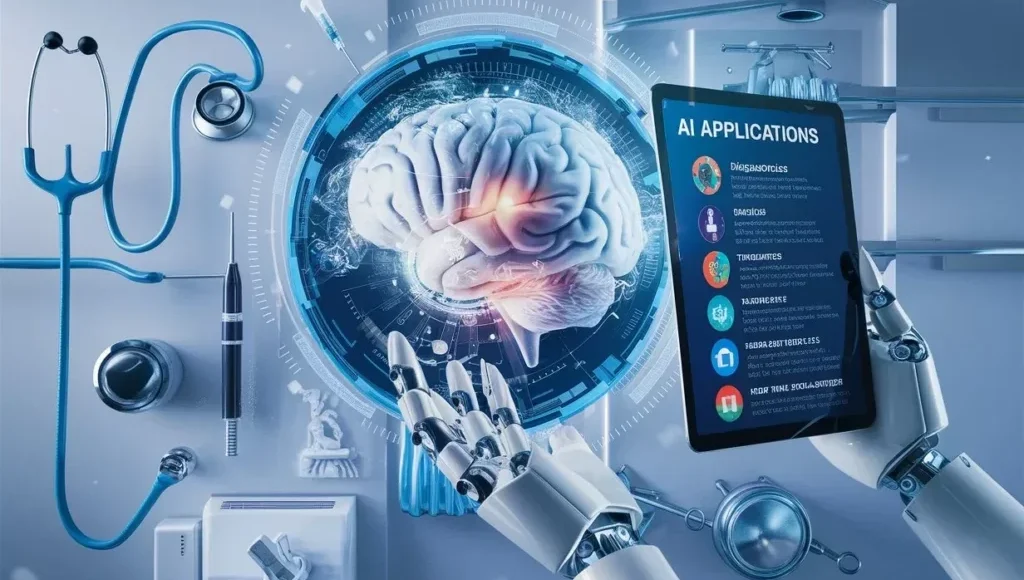AI Revolution in Cancer Research and Treatment

The intersection of artificial intelligence (AI) and medical research is no longer a distant vision—it’s happening now. As tech executives champion the transformative promises of AI, skeptics question whether the technology will deliver real-world benefits or just perpetuate hype. When it comes to curing cancer, the stakes are incredibly high. Researchers and healthcare professionals are cautiously optimistic, and recent developments suggest AI might indeed revolutionize the field. But how much of the promise is reality, and how much is marketing noise?
The Promise: Revolutionizing Cancer Research with AI
AI has the potential to accelerate cancer research in ways that were once unimaginable. Here’s how it’s setting the stage for groundbreaking progress:
- Data Analysis at Unprecedented Speed: AI algorithms can sift through enormous volumes of genetic, clinical, and imaging data, identifying patterns too complex for human researchers to detect.
- Personalized Treatment Plans: Machine learning models can tailor therapies based on an individual’s unique genetic profile, maximizing treatment effectiveness.
- Drug Discovery: AI speeds up the identification of promising drug candidates, reducing the lengthy and costly trial-and-error process.
- Better Diagnostics: Advanced AI imaging tools can detect cancer earlier and more accurately than traditional methods, significantly improving survival rates.
Despite these advancements, it’s crucial to keep in mind that AI isn’t a “magic bullet.” Instead, it acts as a complement to human expertise, enhancing—but not replacing—the judgment of doctors and researchers.
The Reality Check: Challenges in AI’s Role
While AI offers impressive potential, several obstacles stand in its path:
- Data Quality Issues: Inconsistent or biased data can undermine AI effectiveness, leading to inaccurate or unjust outcomes.
- Regulatory Hurdles: New AI applications must navigate strict regulatory frameworks before they can be deployed clinically.
- Ethical Concerns: The use of sensitive patient data raises critical questions about privacy and consent.
- Overpromising: Tech narratives sometimes exaggerate AI’s current capabilities, setting unrealistic public and professional expectations.
“AI is like a microscope for science. It won’t eliminate the need for biologists, doctors, or rigorous trials. It’s a tool that can help us see what was previously invisible.” — Cancer researcher quoted in The Atlantic
In essence, AI’s role is to augment the abilities of world-class researchers, not to substitute them. Recognizing this nuance is key to appreciating AI’s true impact on cancer treatment advances.
Q&A: The Future of AI and Cancer Research
Can AI actually cure cancer?
AI itself won’t “cure” cancer. However, it dramatically accelerates aspects of research, diagnosis, and treatment discovery that could lead to breakthroughs faster than traditional methods alone.
How is AI being used right now in cancer treatment?
Currently, AI is used for analyzing medical images to detect cancer earlier, designing smarter clinical trials, predicting patient outcomes, and even discovering potential drug treatment options. Companies and research labs are actively integrating AI into different stages of cancer research and care protocols.
What are the biggest risks of relying on AI in medicine?
The major risks include biased training data that can lead to inequitable healthcare outcomes, mistakes from “black box” AI decisions that are hard to interpret, and issues surrounding patient data privacy and security.
Is the hype around AI in healthcare justified?
Partially. While the current applications of AI show impressive results, the long-term transformative promises are still unfolding. Real progress requires careful development, validation, and ethical management of AI technologies.
Why Collaboration Will Drive Progress
The real power of AI in cancer research isn’t about machines taking over the lab; it’s about machines and humans working together. Scientists bring context, creativity, and ethical judgment to the table, while AI delivers scale, speed, and precision.
Collaborations between tech companies, academic researchers, healthcare institutions, and regulatory bodies are necessary to unlock AI’s full potential responsibly. The most exciting developments will emerge where these collaborations focus on real-world solutions instead of speculative tech narratives.
Conclusion
AI is undeniably changing the landscape of cancer research, offering tools that could lead to faster discoveries and more personalized treatments. Yet, it’s vital to separate genuine advancements from unrealistic promises. As AI continues to evolve, its most valuable contribution will be enhancing human expertise rather than replacing it. By maintaining a balanced perspective and fostering strategic collaborations, the dream of significantly improving cancer outcomes could become a tangible reality much sooner than once imagined.




TommyHiB
hi
ScoriLab AI Solutions
Hi. How can we help you?